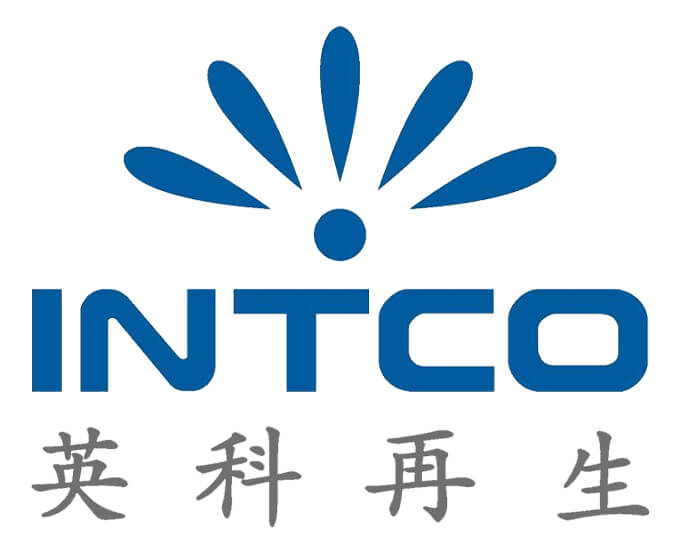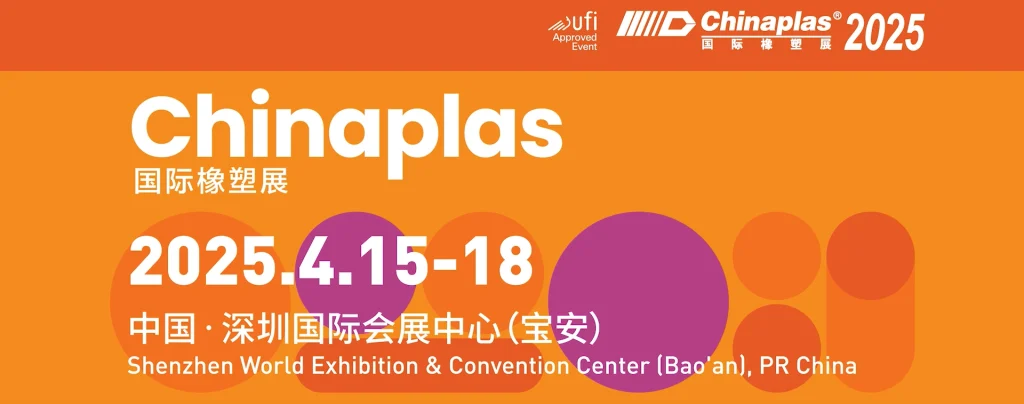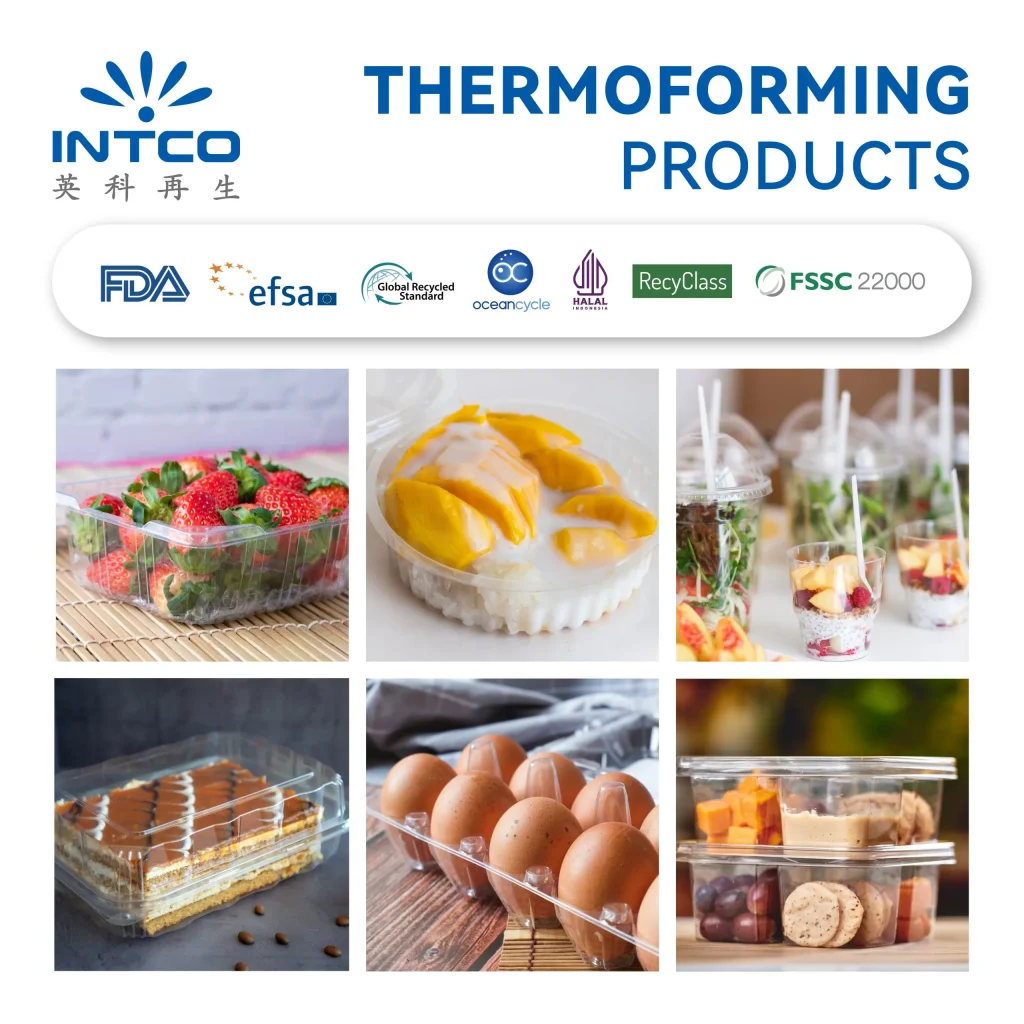Food grade recycled polyethylene terephthalate (rPET) denotes recycled PET that adheres to safety regulations, for coming into contact with food items. It originates from discarded waste from consumers. Transforms bottles and containers for reuse. This provides an option for producers and packaging firms. Usually employed in applications like food and beverage packaging and consumer goods, in forms.
Importance in Reducing Environmental Impact
Utilizing food grade rPET sheets plays a role, in lessening the footprint significantly. By recycling PET materials of using plastic resources like virgin plastic we not only save energy and reduce waste but also lower carbon emissions. Integrating rPET into manufacturing processes contributes to creating a economy. As businesses move towards packaging options rPET emerges as a key component, in their adoption of more eco conscious alternatives.
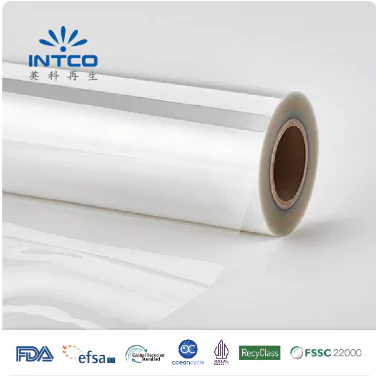
How Does Decontamination Work in the Production of rPET Sheets?
Ensuring the purity of food grade rPET sheets through decontamination processes is essential, for removing contaminants and complying with food safety regulations. One method that has proven involves using vacuum decontamination techniques, where impurities are eliminated by adjusting temperature and pressure settings. By subjecting the material to heat in a vacuum environment volatile organic compounds and other pollutants are vaporized, thereby maintaining the integrity of the recycled material and improving its quality. These measures not enhance product quality. Also guarantee adherence, to food safety guidelines.
Solid-State Polycondensation (SSP) Procedures
Besides using vacuum techniques, for purification purposes in recycling PET (rPET) solid state polycondensation (SSP) plays a role in refining the material quality by heating recycled flakes under controlled conditions conducive for eliminating any residual impurities and boosting the intrinsic viscosity of the substance. Ultimately yielding a superior grade rPET suitable, for food applications that adhere closely or surpass the safety standards stipulated by regulatory bodies overseeing food safety practices. By incorporating both vacuum decontamination and SSP within the manufacturing process of rPET products significantly elevates the purity level of the end product.
The Role of Extrusion in Ensuring Purity
Extrusion plays a role, in converting purified rPET flakes into sheets by using single screw extruders to blend and melt the material effectively to incorporate additives that improve the performance of food safe rPET sheets significantly. This method guarantees an end product from contaminants and meets the required specifications, for applications involving food contact.
Melting and Conveying Process at High Temperatures
In the melting and transportation phases it’s important, to fine tune temperatures for eliminating any leftover impurities in the process of creating food grade rPET sheets while enhancing viscosity and flow properties as needed. The use of temperatures, alongside a functioning conveyance system results in the creation of a pristine and dependable final product.
Advanced Filtration Techniques for Food-Grade rPET
Types of Filtration Used
To ensure that food grade rPET sheets meet the purity standards, for production and maintenance throughout the process of advanced filtering methods are used selectively throughout the process. Different filtration technologies including melt filters screen changers and fine filtration systems are employed for this purpose. These systems play a role, in eliminating microscopic contaminants additives and other particles from the rPET melt to maintain its quality.
Effectiveness in Removing Micro-Contaminants and Additives
The effectiveness of these filtration techniques ensures that the final food-grade rPET sheets maintain high standards of cleanliness. As contaminants are removed at multiple stages in the production cycle, the material’s quality is significantly improved. This rigorous approach to filtration supports compliance with health and safety standards necessary for food contact materials, reinforcing the overall value of using food-grade rPET sheets in packaging applications.
For those seeking a reliable partner in food-grade packaging solutions, Intco Plastic offers exceptional products, including their Food-grade R-PET Sheet, which has been certified by the appropriate food safety authorities.
As the market moves towards sustainability and environmental awareness, utilizing food-grade rPET not only serves a functional purpose but also aligns with your commitment to reducing plastic waste. The solution offered by Intco Plastic may streamline your packaging operations while ensuring adherence to all safety regulations.
Washing and Pre-Treatment Processes: Ensuring a Clean Start
The first washing stages play a role, in eliminating surface impurities from recycled PET materials obtained post consumption. This step generally includes actions like washing the shredded PET flakes in water to loosen foreign substances. It’s common for labels and lids to stick to the surface. They need to be eliminated for top quality final products. By carrying out these washing methods you lay the groundwork, for manufacturing food grade rPET sheets setting the stage for further processing steps.
Removing Labels, Lids, and Rings
During the washing process, in recycling facilities; removing labels and lids is essential to maintain quality standards for the materials being processed. Labels contain adhesives that might contaminate the materials;. Lids can cause hindrances in the recycling process. To address this issue; special equipment, like label removers and centrifugal washing systems are used. These machines use movements to remove all recyclable parts; ensuring that only a clean surface remains for further processing.
Chemical Treatments for Additional Safety
After removing any impurities from the material chemical treatments are used to improve its safety and dependability. Different types of soaps and cleaners are used to dissolve any lingering impurities that may not have beenremoved during washing. This chemical cleaning step is vital, in guaranteeing that all residues, smells and chemical remnants are completely eliminated. These treatments are particularly critical, for applications involving food grade materials since even tiny impurities could jeopardize product safety and excellence.
Addressing Challenges in Producing High-Quality Food-Grade rPET
The quality of recycled materials, from consumer sources plays a crucial role in producing top notch food grade rPET sheets.The source variability in recycled materials can lead to impurities that impact the products characteristics.Manufacturers can reduce risks linked to lower quality inputs by sorting and categorizing incoming materials.It’s vital to enforce a quality control system during the collection and sorting stages to guarantee that only appropriate materials advance, through the production process.
Steps to Improve Material Performance and Consistency
Manufacturers frequently undertake improvement processes to improve the quality and consistency of food grade rPET sheets by incorporating cutting edge sorting technologies and purification techniques to ensure quality in the materials used and investing in training and operational protocols for staff to efficiently handle sorting and cleaning tasks can enhance user satisfaction and build credibility, for the sustainability claims linked to these items.
Integrated Solution for High-Quality Food-Grade Recycled PET Sheets
For companies looking to ensure the quality of their PET products, for food use incorporating manufacturing methods can offer a significant edge. Taking an approach that covers cleaning and chemical processes as well as cutting edge filtration methods guarantees comprehensive removal of impurities. This strategy can enhance productivity. Minimize inconsistencies in the output. According to Intco Plastics guidelines their tailored solutions are crafted to meet the criteria, for food related uses.
Choosing the Right Manufacturer for Your rPET Needs
Selecting a reliable manufacturer for food-grade rPET sheets is essential to ensuring your products meet high safety and quality standards. Engaging with companies that prioritize compliance with FDA and EFSA regulations will provide you peace of mind. It’s advisable to assess manufacturers’ certifications and their commitment to sustainable practices. Companies like Intco Plastic not only deliver high-quality Food Grade Recycled PET Sheet solutions but also emphasize on sustainable materials made from recycled inputs. This commitment reflects their understanding of both environmental responsibility and the priorities of today’s packaging landscape.
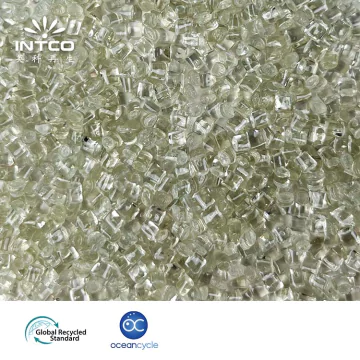
Conclusion
In the manufacturing of food grade rPET sheets it’s essential to remove any impurities throughout the production process. The methods used during cleaning and chemical processing well, as how challenges concerning the quality of postconsumer scrap material are dealt with will impact the overall quality of the final product. Collaborating with manufacturers that offer solutions and adhere to regulatory requirements can result in a top notch eco friendly product suitable for food contact uses. Adopting these approaches not boosts your effectiveness but also showcases your commitment, to protecting the environment.
